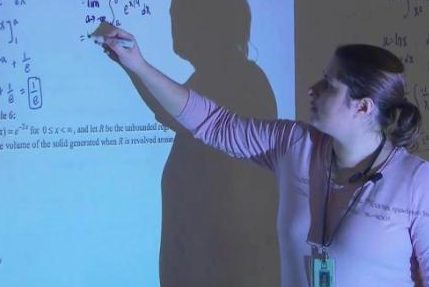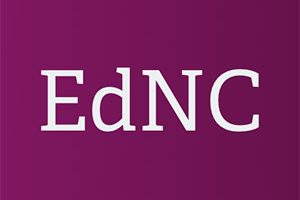ASD Bill Passes Committee-House Vote Possible Next Week
HB 1080- Achievement School District, passed out of the House K-12 Education Committee this week. The 18-11 vote came after a good deal of discussion about the wisdom of allowing for-profit charter management groups to take control of some low-performing public elementary schools. “Every year a kid stays in one of these failing schools is a year lost. You can’t get them back,” bill sponsor Rep. Rob Bryan (R-Mecklenburg), told the committee.
Rep. Kyle Hall (R-Stokes) attempted to add an amendment establishing that the State would be responsible for repair and renovation costs of schools that are taken over by the charter management groups through the ASD. Opponents of the amendment argued that it would set a bad precedent since school capital costs have historically been a local responsibility. The amendment did not pass.
Some committee members asked Rep. Bryan about the mixed results of ASD programs in other states such as Tennessee. Rep. Bryan responded that the program in HB 1080 is different because it puts prerequisites on any group applying to manage a school in the ASD. “The guardrail we put on this is that you’ve got to be a successful operation,” he said.
HB 1080 is extremely likely to come up on the House floor next week, potentially as early as Tuesday. Please be contacting House member(s) in opposition (click here for contact info). As soon as it is scheduled we will send you an Alert so please watch your email closely.
Click here for the NCSBA issue brief on this.
Charter Advocates Continue Push for HB 539
The charter school community is continuing to push strongly for the House to concur with HB 539. While it remains important that you maintain contact with your House member(s) in opposition, it is also critical to be communicating locally to develop grassroots opposition to HB 539 within your communities. Reach out to local PTAs and other community groups that support public education, make sure they understand what is at stake with HB 539, and get them involved in spreading the word to parents and concerned citizens. These types of efforts are happening on the charter side. For example, proponents of HB 539 are spreading their message of “fair funding” on social media using the hashtag #fairfundsnc. Charter schools are also sending to their parents call to action messages such as this (click here). School districts need to be countering these efforts. Remember that HB 539 could come up at any time.
Resources & Points to Remember
Below are materials and informational items to circulate in your communities.
*A one-page sheet with talking points on HB 539 can be found here.
*A short video on this issue can be found here. Make sure to continue sharing this video on social media and encourage others to do so.
*A longer Myth/Fact sheet on the issue can be found here.
*Legislators and others need to understand the pots of monies that school districts would have to transfer if HB 539 becomes law (reimbursements, gifts, federal grants, etc.). A review of the types of monies at risk can be found here.
*Charter schools can already seek out many of the monies at issue in HB 539 without having to take them from school districts. For example, school districts would have to transfer E-rate reimbursements under HB 539 but charters already have the ability to seek out E-Rate reimbursements if they so choose.
*There are policies and laws that limit how federal grants and reimbursements are used and which students may be served. Charters continue to claim that despite these policies and laws, they should be entitled to a share of federal grants and reimbursements that a school district receives.
*Charters continue to claim that charter students receive only 75 cents for every dollar provided to LEAs. This is a flawed calculation based on factors unrelated to per-pupil funding and reflects an apples-to-oranges comparison of district and charter funding.
Budget News
Senate budget writers are expecting to finish their budget over Memorial Day weekend, possibly making it publicly available as soon as Tuesday. The budget would move through the Senate’s finance and appropriations committees Tuesday or Wednesday with the full chamber taking a final vote by the end of next week. “We’re going to be heavy with the budget over here,” said Sen. Tom Apodaca (R-Henderson).
This week Senate leader Phil Berger (R-Rockingham) held a press conference to provide an overview of what the Senate will be doing with teacher pay in its budget. The Senate’s plan adds $538 million to base pay over the next two years to bring the average annual teacher salary to approximately $54,000. Senator Berger explained that this would make North Carolina the regional leader in teacher pay. “If everything else remains stagnant, teachers will receive almost $200,000 in additional pay over the course of their career under this plan,” Sen. Berger said. It was also explained that the Senate’s plan allows teachers to get max out at the top of the pay scale year 15 (currently 25). “We think this is the right plan for teachers in North Carolina at this time,” Sen. Berger said. The proposal as outlined is bigger than the average 4.1% teacher pay raises the House included in its budget. Sen. Berger also announced that raises for other school and state employees would be disclosed when the Senate budget is made public.
Click here for a video of Senator Berger’s press conference.
Another K-12 item to watch in the Senate budget is whether it includes the language from SB 862- Opp. Scholarships Forward Funding, a bill filed by Sen. Chad Barefoot (R-Wake). This language would significantly increase funding for the Opportunity Scholarship school voucher program. A reserve fund would be created and there would be an automatic transfer of funds from the General Fund to this reserve fund to be used to award new vouchers. Funding for the program would be increased from $17.6 million to $44.8 million for the 2018-19 school year. This number would rise by $10 million each year thereafter until it reaches $134.8 million in the 2027-28 school year.
House Budget Information
Click here for a summary of the House-passed budget.
Click here to see the line-item adjustments made by the House budget, as prepared by DPI.
Click here to read the budget money report.
Teacher Criminal Background Checks
A Senate committee advanced legislation this week to require all individuals seeking an NC teaching license to undergo a criminal background check. The bill is SB 867 and it would put the State Board of Education in charge of setting up a criminal background check program for prospective teachers and reviewing the results of those checks. Prospective teachers would have to pay a fee for the background check but that fee could be paid by the local school board at its discretion. The legislation lays out dozens of crimes that would disqualify candidates thought to pose a threat to school safety. Local school boards would continue to decide whether to conduct criminal background checks for other school employees.
Bill Dealing with Anti-Pension Spiking
On Tuesday, the House Pensions and Retirement Committee will take up HB 1134. Section 6 of HB 1134 makes the Treasurer’s Office exempt from the APA (rule-making process) as it relates to the anti-pension spiking cap (retroactive to January 1, 2015). This language would negate lawsuits that a couple of local school boards have filed against the Retirement System on the anti-pension spiking issue.
Bills
Action Bills: Click here for a list of NCSBA-tracked bills that had action this week.
Upcoming Legislative Meetings and Events
Monday, May 30
The House will hold a skeleton session (no votes).
Tuesday, May 31
9:00 AM
The Senate will convene.
10:00 AM
The House Pensions and Retirement Committee will meet and consider the following pertinent bills:
HB 1134- Admin. Changes Retirement System/Treasurer
HB 1137- Treasurer’s 2016 Investment Admin. Changes- AB
10:00 AM
The Senate Finance Committee will meet and consider the following local bill: SB 727-Moore Cty Local Sales Tax Use Restriction
Wednesday, June 1
Thursday, June 2
Leanne E. Winner
Director of Governmental Relations
N.C. School Boards Association
(919)747-6686 direct dial
Bruce Mildwurf
Associate Director of Governmental Relations
N.C. School Boards Association
(919) 606-3916 mobile
Bryan Holloway
Associate Director of Governmental Relations
N.C. School Boards Association
(919)747-6677 direct dial




